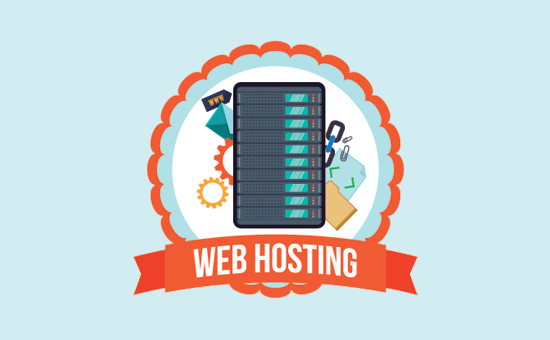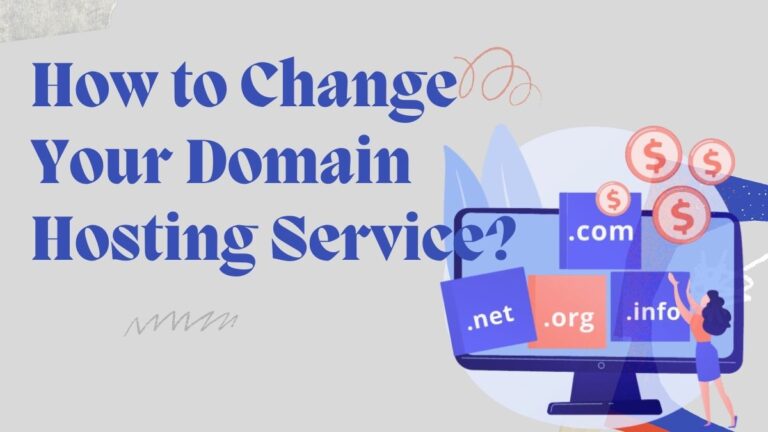Demystifying Web Hosting and Domain: A Complete Guide to Understanding the Basics

Are you feeling lost in the vast world of web hosting and domain? Don’t worry, you’re not alone! With countless terms and technical jargon thrown around, it’s easy to get overwhelmed. But fear not, because we’ve got your back!
In this comprehensive guide, we’ll demystify the complex world of web hosting and domains, breaking down everything from the basics to advanced concepts. So whether you’re a newbie looking to start your online journey or an experienced website owner wanting to brush up on your knowledge, join us as we unravel the mysteries and empower you with all the tools you need for online success!
Table of Contents
Introduction to Web Hosting & Domain
Web hosting and domain can be confusing topics, especially if you’re just getting started with your online presence. This guide will help you understand the basics of web hosting and domain so that you can make informed decisions when it comes time to set up your website.
Web hosting is a service that provides servers for websites. When you create a website, you need somewhere to host the files that make up your site. That’s where web hosting comes in. A web host stores your website’s files on their servers and makes them available to visitors around the world.
Domain names are how people find your website on the internet. Just like your home has an address, every website has a unique address called a domain name. When you register a domain name, you’re telling the world where to find your website.
Now that you understand the basics of web hosting and domain, you’re ready to start creating your own online presence!
What is a Domain Name?
A domain name is a unique identifier for a website. It is the address people type in to visit your site. Domain names are made up of two parts: the top-level domain (TLD) and the second-level domain (SLD). The TLD is the part of the domain name that comes after the dot, such as .com or .net. The SLD is the part of the domain name that comes before the dot, such as google or facebook.
Domain names must be registered with a registrar before they can be used. Once registered, they are assigned to a web host, which provides the technology and services needed to get your website online.
Domain names are an essential part of the online world, as they make it easier for people to find websites. With a domain name, you can create an identity that is both memorable and easily recognizable.
Types of Domains
There are many different types of domains that you can register for your website. The most common type of domain is a .com, which is short for “commercial.” There are also .net domains, which are meant for networks, and .org domains, which are typically used by non-profit organizations. You can also register country-specific domains, such as .us for the United States or .ca for Canada.
In addition to these, there are also various new domain extensions such as .global, .tech, and .store. You can also register domains with symbols like .club and .fun. Finally, you can even create your own custom domain extension if you want to stand out from the crowd.
What is Web Hosting?

Web hosting is a service that allows organizations and individuals to post a website or web page onto the Internet. A web host, or web hosting service provider, is a business that provides the technologies and services needed for the website or webpage to be viewed in the Internet. Websites are hosted, or stored, on special computers called servers. When Internet users want to view your website, all they need to do is type your website address or domain into their browser. Their computer will then connect to your server and your webpages will be delivered to them through the browser.
Most people don’t know anything about web hosting because it’s not something they need to think about when they use the Internet. It just works! However, if you’re planning on setting up a website, you will need to choose a web hosting service and purchase a domain name. This can seem like a daunting task, but we’re here to help demystify the process.
Web hosting is simply a way to store your website files on a server so that people can access them online. When you buy web hosting, you essentially rent space on a server from a web hosting company. The benefit of this approach is that it’s much cheaper than buying your own server outright because you only pay for the space that you use. Plus, you don’t have to worry about maintaining or managing the server yourself since that’s all taken care of by the web host. All you need to do is focus on building your website.
Different Types of Web Hosting
There are four different types of web hosting: shared, VPS, dedicated, and cloud. Shared hosting is the most popular and most affordable option. With shared hosting, your website shares a server with other websites. This means that you can save money on hosting costs, but it also means that your website may be affected by the traffic or activity of other websites on the same server.
VPS (virtual private server) hosting is a step up from shared hosting. With VPS hosting, your website is still sharing a server with other websites, but each website has its own virtual space that is isolated from the others. This means that your website will not be affected by the traffic or activity of other websites on the same server.
Dedicated hosting is the most expensive option, but it provides you with your own physical server. This means that you won’t have to share resources with other websites and you’ll have more control over how your website performs.
Cloud hosting is a newer option that combines features of both VPS and dedicated hosting. With cloud hosting, your website is hosted on a network of servers rather than just one server. This allows for more flexibility and scalability than traditional VPS or dedicated hosting options.
No matter which type of hosting you choose, there are a few factors to consider in order to ensure that your website is secure and performs as expected. Be sure to research your web host’s security measures, data backup protocols, and customer support options before making a decision.
How to Choose the Right Web Host and Domain for You?
When you’re ready to take your business online or launch a new website, one of the first steps is choosing a web host and domain. But with all the options out there, it can be hard to know where to start.
Here are a few things to keep in mind when choosing a web host and domain for your website:
- Know Your Website Needs: Before you start shopping around for a web host, take a moment to think about what your website needs. Do you need a lot of storage space? A lot of bandwidth? Special features like e-commerce or security? Knowing what you need will help you narrow down your options and find the best fit for your website.
- Compare Features and Prices: Once you know what you need, it’s time to start comparing hosts and domains. Look at the features each one offers and compare prices to find the best deal. Don’t forget to read the fine print! Some hosts have hidden fees or require long-term contracts.
- Read Reviews: Don’t just take a web host’s word for it that they’re the best—read reviews from real customers first. Look for reviews on independent websites, not just the web host’s own site. This will give you a more accurate idea of what other people really think about their service.
- Get Help If You Need It: If you’re feeling overwhelmed, don’t hesitate to get help from a professional. An experienced web developer or consultant can help you find the right web host and domain for your website.
Choosing the right web host and domain is an important step in launching any website. By taking the time to compare features and prices, read reviews, and understand your needs, you can find the perfect fit for your website.
Key Considerations for Choosing a Web Host and Domain
There are a few key considerations to keep in mind when choosing a web host and domain for your website. First, you’ll need to decide on the purpose of your website. Are you looking to create a personal blog, an online store, or a portfolio? Once you know the purpose of your site, you can start narrowing down your choices for a domain name and web host.
Next, consider your budget. How much are you willing to spend on hosting and domain? Do you need a managed host or can you handle the technical aspects yourself? Make sure to get quotes from a few different hosts before making your decision.
Another important consideration is security. What type of security measures does the web host offer? Do they have SSL certificates and regular backups? These are just some of the things you’ll need to think about when choosing a web host and domain for your website.
Finally, look into the level of customer service and technical support offered by the web host. Make sure they have a reliable help desk and knowledgeable staff available to answer any questions you may have. This will ensure that your website is up and running smoothly at all times.
Benefits of Different Hosts and Domains
Different hosts and domains offer different benefits to users. Here are some of the benefits of different hosts and domains:
- Different hosts offer different features. Some hosts offer more storage space than others. Some hosts offer unlimited bandwidth while others have limits. Be sure to choose a host that offers the features you need.
- Domains can be used to identify yourself or your business on the Internet. A domain can make it easier for customers to find you online and can give your business a professional look.
- Hosts can provide security features, such as SSL certificates, that can help protect your website from hackers.
- Some hosts offer marketing tools, such as Google AdWords credits, that can help you promote your website.
- Some domains come with email accounts that can be used for business or personal use.
- Different hosting companies offer different levels of customer support. Be sure to choose a host that offers good customer service and technical support.
- When choosing a domain, consider the name carefully. A good domain name can be easy for customers to remember and can help you stand out from the competition.
Overall, different hosts and domains can offer a variety of benefits depending on your needs. Be sure to do your research and choose the best host and domain for you.
Tips for Managing Your Website with a Domain and Hosting Provider
Your domain name is your online identity. It’s how customers find you and how you present yourself to the world. So it’s important to choose a domain name that is relevant to your business, easy to remember, and short enough that it can be easily typed into a web browser.
Your web hosting provider is the company that provides the server space and bandwidth for your website. When you’re looking for a web hosting provider, you’ll want to find one that offers reliable uptime, fast page loading times, and customer support in case you need help with anything.
When you’re managing your website with a domain and hosting provider, there are a few things to keep in mind:
- Make sure your domain name is relevant to your business and easy to remember.
- Choose a web hosting provider that offers reliable uptime and fast page loading times.
- If you need help with anything, make sure your web hosting provider has good customer support.
- Regularly back up your website to protect it from any data loss.
- Make sure you have a secure connection when transferring data between your domain and hosting provider.
- Set up email accounts with your domain name so customers can easily contact you.
- Stay organized and keep track of all updates, passwords, and payment information for your website.
- Monitor your website’s performance to make sure it’s running efficiently.
By following these tips, you can ensure that you are managing your website in the best way possible with a domain and hosting provider.
Conclusion
Web hosting and domain can be confusing concepts, but they are actually quite simple. By understanding the basics of how they work, you can make sure that your website is always up and running.
Domain names are the web addresses that people use to access your site. Your domain name should be easy to remember and short so that people can easily find your site.
Web hosting is the service that provides storage for your website’s files. When someone visits your website, their computer will connect to your web host and retrieve the files they need to view your site.
You’ll need to choose a web host that offers reliable service and fast speeds. You’ll also want to consider the amount of storage space you’ll need, as well as any extra features you may want.
Once you’ve chosen a web host and registered your domain name, you can start building your website. Be sure to include relevant keywords in your titles and descriptions so people can easily find your site when they search for it online.






